- Home
- Gustave Aimard
The Border Rifles: A Tale of the Texan War Page 3
The Border Rifles: A Tale of the Texan War Read online
Page 3
CHAPTER III.
BLACK AND WHITE.
In the meanwhile, as we have said, the Canadian hunter, whose name we atlength know, had reached the bank of the river where he left the Negroconcealed in the shrubs.
During the long absence of his defender, the slave could easily havefled, and that with the more reason, because he had almost the certaintyof not being pursued before a lapse of time, which would have given hima considerable start on those who were so obstinately bent on capturinghim.
He had not done so, however, either because the idea of flight did notappear to him realizable, or because he was too wearied, he had notstirred from the spot where he sought a refuge at the first moment, andhad remained with his eyes obstinately fixed on the platform, followingwith anxious glance the movements of the persons collected on it.
John Davis had not at all flattered him in the portrait he had drawn ofhim to the hunter. Quoniam was really one of the most magnificentspecimens of the African race: twenty-two years of age at the most, hewas tall, well-proportioned and powerfully built; he had wide shoulders,powerfully developed chest, and well-hung limbs; it was plain that hecombined unequalled strength with far from ordinary speed and lightness;his features were fine and expressive, his countenance breathedfrankness, his widely opened eyes were intelligent--in short, althoughhis skin was of the deepest black, and unfortunately, in America, theland of liberty, that colour is an indelible stigma of servitude, thisman did not seem at all to have been created for slavery, for everythingabout him aspired to liberty and that free-will which God has given tohis creatures, and men have tried in vain to tear from them.
When the Canadian re-entered the canoe, and the American quitted theplatform, a sigh of satisfaction expanded the Negro's chest, for,without knowing positively what had passed between the hunter and hisold master, as he was too far off to hear what was said, he understoodthat, temporarily at least, he had nothing to fear from the latter, andhe awaited with feverish impatience the return of his generous defender,that he might learn from him what he had henceforth to hope or fear.
So soon as he reached land, the Canadian pulled his canoe on to thesand, and walked with a firm and deliberate step toward the spot wherehe expected to find the Negro.
He soon noticed him in a sitting posture, almost at the same spot wherehe had left him.
The hunter could not repress a smile of satisfaction.
"Ah, ah," he said to him, "there you are, then, friend Quoniam."
"Yes, master. Did John Davis tell you my name?"
"As you see; but what are you doing there? Why did you not escape duringmy absence?"
"Quoniam is no coward," he replied, "to escape while another is riskinghis life for him. I was waiting ready to surrender myself if the whitehunter's life had been threatened."[1]
This was said with a simplicity full of grandeur, proving that such wasreally the Negro's intention.
"Good!" the hunter replied, kindly, "I thank you, for your intention wasgood; fortunately, your interference was unneeded; but, at any rate, youacted more wisely by remaining here."
"Whatever may happen to me, master, be assured that I shall feel evergrateful to you."
"All the better for you, Quoniam, for that will prove to me that you arenot ungrateful, which is one of the worst vices humanity is afflictedby; but be good enough not to call me master again, for it grieves me;the word implies a degrading inferiority, and besides, I am not yourmaster, but merely your companion."
"What other name can a poor slave give you?"
"My own, hang it. Call me Tranquil, as I call you Quoniam. Tranquil isnot a difficult name to remember, I should think."
"Oh, not at all," the Negro said with a laugh.
[Footnote 1: Nothing appears to us so ridiculous as that conventionaljargon Which is placed in the mouth of Negroes; a jargon which, in thefirst place, impedes the story, and is moreover false; a double reasonwhich urges us not to employ it here--all the worse for the localcolouring.--G.A.]
"Good! That is settled, then; now, let us go to something else, and, inthe first place, take this."
The hunter drew a paper from his belt, which he handed to the Black.
"What is this?" the latter asked with a timid glance, for his ignoranceprevented him deciphering it.
"That?" the hunter said with a smile; "it is a precious talisman, whichmakes of you a man like all the rest of us, and removes you from theanimals among which you have been counted up to this day; in a word, itis a deed by which John Davis, native of South Carolina, slave dealer,from this day restores to Quoniam his full and entire liberty, to enjoyit as he thinks proper--or, if you prefer it, it is your deed ofliberation written by your former master, and signed by competentwitnesses, who will stand by you if necessary."
On hearing these words the Negro turned pale after the fashion of men ofhis colour; that is to say, his face assumed a tinge of dirty gray, hiseyes were unnaturally dilated, and for a few seconds he remainedmotionless, crushed, incapable of uttering a word or making a movement.
At length he burst into a loud laugh, leaped up twice or thrice with thesuppleness of a wild beast, and then broke suddenly into tears.
The hunter attentively watched the Negro's movement, feeling interestedto the highest degree in what he saw, and evidencing each moment agreater sympathy with this man.
"Then," the Black at length said, "I am free--truly free?"
"As free as a man can be," Tranquil replied, with a smile.
"Now I can come, go, sleep, work, or rest, and no one can prevent me,and I need not fear the lash?"
"Quite so."
"I belong to myself, myself alone? I can act and think like other men? Iam no longer a beast of burthen, which is loaded and harnessed? I am asgood as any other man, white, yellow, or red?"
"Quite so," the hunter answered, amused and interested at the same timeby these simple questions.
"Oh!" the Negro said, as he took his head in his hands, "I am freethen--free at last!"
He uttered these words with a strange accent, which made the hunterquiver.
All at once he fell on his knees, clasped his hands, and raised his eyesto Heaven.
"My God!" he exclaimed, with an accent of ineffable happiness. "Thou whocanst do all, thou to whom all men are equal, and who dost not regardtheir colour to protect and defend them. Thou, whose goodness isunbounded like thy power; thanks! Thanks! My God, for having drawn mefrom slavery, and restored my liberty!"
After giving vent to this prayer, which was the expression of thefeelings that boiled in his heart, the Negro fell on the ground, and forsome minutes remained plunged in earnest thought. The hunter respectedhis silence.
At length the Negro raised his head again.
"Listen, hunter," he said. "I have returned thanks to God for mydeliverance, as was my duty; for it was He who inspired you with thethought of defending me. Now that I am beginning to grow a littlecalmer, and feel accustomed to my new condition, be good enough to tellme what passed between you and my master, that I may know the extent ofthe debt I owe you, and that I may regulate my future conduct by it.Speak, I am listening."
"What need to tell you a story which can interest you so slightly? Youare free, that ought to be sufficient for you."
"No, that is not sufficient; I am free, that is true, but how have Ibecome so? That is what I do not know, and I have the right to ask ofyou."
"The story, I say again, has nothing that can interest you at all;still, as it may cause you to form a better opinion of the man to whomyou belonged, I will not longer refuse to tell it to you; so listen."
Tranquil, after this opening, told in all their details the events thathappened between himself and the slave dealer, and when he had finished,added--
"Well, are you satisfied now?"
"Yes," the Negro replied, who had listened to him with the mostsustained attention. "I know that, next to God, I owe everything to you,and I will remember it; never will you have to remind me of the d
ebt,under whatever circumstances we may meet."
"You owe me nothing, now that you are free; it is your duty to employthat liberty in the way a man of upright and honest heart should do."
"I will try not to prove myself unworthy of what God and you have donefor me; I also thank John Davis sincerely for the good feeling thaturged him to listen to your remonstrances; perhaps I may be able torequite him some day; and, if the opportunity offers, I shall notneglect it."
"Good! I like to hear you speak so, for it proves to me that I was notmistaken about you; and now what do you intend to do?"
"What advice do you give me?"
"The question you ask me is a serious one, and I hardly know how toanswer it; the choice of a profession is always a difficult affair, andmust be reflected upon ripely before a decision is formed; in spite ofmy desire to be of service to you, I should not like to give you advice,which you would doubtless follow for my sake, and which might presentlycause you regret. Besides, I am a man whose life since the age of sevenhas always been spent in the woods, and I am, consequently, far toounacquainted with what is called the world to venture to lead you on apath which I do not know myself."
"That reasoning seems to me perfectly correct. Still, I cannot remainhere, and must make up my mind to something or other."
"Do one thing."
"What is it?"
"Here are a knife, gun, powder, and bullets; the desert is open beforeyou, so go and try for a few days the free life of the great solitudes;during your long hours of hunting you will have leisure to reflect onthe vocation you are desirous to embrace; you will weigh in your mindthe advantages you expect to derive from it, and then, when your mind isquite made up, you can turn your back on the desert, go back to thetowns, and, as you are an active, honest, and intelligent man, I amcertain you will succeed in whatever calling you may choose."
The Negro nodded his head several times.
"Yes," he said, "in what you propose to me there is both good and bad;that is not exactly what I should wish."
"Explain yourself clearly, Quoniam; I can see you have something at theend of your tongue which you do not like to say."
"That is true; I have not been frank with you, Tranquil, and I waswrong, as I now see clearly. Instead of asking you hypocritically foradvice, which I did not at all intend to follow, I ought to have toldyou honestly my way of thinking, and that would have been altogetherbetter."
"Come," the hunter said, laughingly, "speak."
"Well, really I do not see why I should not tell you what I have on myheart. If there be a man in the world who takes an interest in me it iscertainly you; and hence, the sooner I know what I have to depend on,the better: the only life that suits me is that of a wood-ranger. Myinstincts and feelings impel me to it; all my attempts at flight, when Iwas a slave, tended to that object. I am only a poor Negro, whom hisnarrow mind and intelligence would not guide properly in towns, whereman is not valued for what he is worth, but for what he appears. Whatuse would that liberty, of which I am so proud, appear to me, in a townwhere I should have to dispose of it to the first comer, in order toprocure the food and clothing I need? I should only have regained myliberty to render myself a slave. Hence it is in the desert alone I canprofit by the kindness I owe to you, without fear of ever being impelledby wretchedness to actions unworthy of a man conscious of his own worth.Hence it is in the desert I desire henceforth to live, only visiting thetowns to exchange the skins of animals I have killed for powder,bullets, and clothing. I am young and strong, and the God who hashitherto protected me will not desert me."
"You are perhaps right, and I cannot blame you for wishing to follow myexample, when the life I lead seems to me preferable to all others.Well, now that is all settled, my good Quoniam, we can part, and I wishyou luck; perhaps we shall meet again, sometimes, on the Indianterritory."
The Negro began laughing, and showed two rows of teeth white as snow,but made no reply.
Tranquil threw his rifle on his shoulder, gave him a last friendly signof parting, and turned to go back to his canoe.
Quoniam seized the rifle the hunter had left him, passed the knifethrough his girdle, to which he also fastened the horns of powder andbullets, and then, after a final glance to see he had forgotten nothing,he followed the hunter, who had already gained a considerable start onhim.
He caught Tranquil up at the moment he reached his canoe, and was aboutto thrust it into the water; at the sound of footsteps, the hunterturned round.
"Halloh," he said, "is that you again, Quoniam?"
"Yes," he answered.
"What brings you here?"
"Why," the Negro said, as he buried his fingers in his woolly hair, andscratched his head furiously, "you forgot something."
"What was it?"
"To take me with you."
"That is true," the hunter said, as he offered him his hand; "forgiveme, brother."
"Then you consent?" he asked, with ill-restrained joy.
"Yes."
"We shall not part again?"
"It will depend on your will."
"Oh, then," he exclaimed, with a joyous outburst of laughter, "we shallbe together a long time."
"Well, be it so," the Canadian went on. "Come; two men, when they havefaith in each other, are very strong in the desert. Heaven, doubtless,willed that we should meet. Henceforth we shall be brothers."
Quoniam leaped into the canoe, and gaily caught up the paddles.
The poor slave had never been so happy; never had the air seemed to himpurer, or nature more lovely--everything smiled on him, and made holidayfor him, for that moment he was about to begin really living the life ofother men, without any bitter afterthought; the past was no more than adream. He had found in his defender what so many men seek in vain,throughout a lengthened existence--a friend, a brother, to whom he couldtrust entirely, and from whom he would have no secrets.
In a few minutes they reached the spot which the Canadian had noticed onhis arrival; this spot, clearly indicated by the two oaks which hadfallen in a cross, formed a species of small sandy promontory,favourable to the establishment of a night bivouac; for thence not onlycould the river be surveyed a long distance up and down, but it was alsoeasy to watch both banks, and prevent a surprise.
"We will pass the night here," Tranquil said; "let us carry up thecanoe, so as to shelter our fire."
Quoniam seized the light skiff, raised it, and placing it on hismuscular shoulders, carried it to the spot his comrade had pointed out.
In the meanwhile, a considerable period had elapsed since the Canadianand the Negro met so miraculously. The sun, which had been low when thehunter doubled the promontory and chased the herons, was now on thepoint of disappearing; night was falling rapidly, and the background ofthe landscape was beginning to be confused in the shades of night, whichgrew momentarily denser.
The desert was awakening, the hoarse roar of the wild beasts was heardat intervals, mingled with the miawling of the carcajou, and the sharpsnapping bark of the prairie wolves.
The hunter chose the driest wood he could find to kindle the fire, inorder that there might be no smoke, and the flame might light up thevicinity, so as to reveal at once the approach of the dangerousneighbours whose cries they could hear, and whom thirst would not failsoon to bring toward them.
The roasted birds and a few handfuls of pemmican composed the rangers'supper; a very sober meal, only washed down with water from the river,but which they ate with good appetite, like men who knew how toappreciate the value of any food Providence places at their disposal.
When the last mouthful was swallowed, the Canadian paternally shared hisstock of tobacco with his new comrade, and lit his Indian pipe, in whichhe was scrupulously imitated by Quoniam.
"Now," said Tranquil, "it is as well you should know that an old friendof mine gave me the meeting at this spot about three months ago; he willarrive at daybreak to-morrow. He is an Indian Chief, and, althoughstill very young, enjoys a great reputation in his
tribe. I love him asa brother, and we were, I may say, brought up together. I shall be gladto see you gain his favour, for he is a wise and experienced man, forwhom desert life possesses no secrets. The friendship of an Indian Chiefis a precious thing to a wood-ranger; remember that. However, I feelcertain you will be good friends at once."
"I will do all that is required for that. It is sufficient that theChief is your friend, for me to desire that he should become mine. Up tothe present, though I have wandered about the woods a long time as arunaway slave, I have never seen an independent Indian; hence it ispossible that I may commit some awkwardness without my knowledge. But beassured that it will not happen through any fault of mine."
"I am convinced of it, so be easy on that head. I will warn the Chief,who, I fancy, will be as surprised as yourself, for I expect you will bethe first person of your colour he has ever met. But night has now quiteset in; you must be fatigued by the obstinate pursuit you experiencedthe whole day, and the powerful emotion you endured: sleep, while Iwatch for both, especially as I expect we shall make a long marchto-morrow, and you must be prepared for it."
The Negro understood the correctness of his friend's remarks, the moreso as he was literally exhausted with fatigue; he had been hunted soclosely by his ex-master's blood-hounds, that for four days he had notclosed his eyes. Hence, laying aside any false shame, he stretched outhis feet to the fire, and slept almost immediately.
Tranquil remained seated on the canoe with his rifle between his legs,to be prepared for the slightest alarm, and plunged into deep thought,while attentively watching the neighbourhood, and pricking his ear atthe slightest noise.

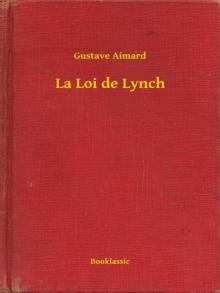 La loi de lynch. English
La loi de lynch. English The Guide of the Desert
The Guide of the Desert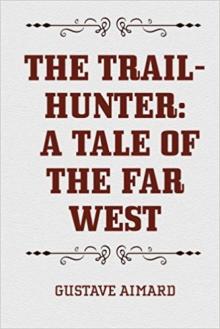 The Trail-Hunter: A Tale of the Far West
The Trail-Hunter: A Tale of the Far West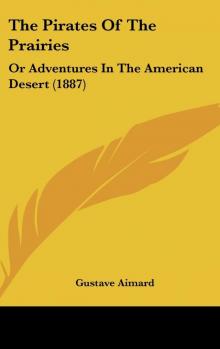 The Pirates of the Prairies: Adventures in the American Desert
The Pirates of the Prairies: Adventures in the American Desert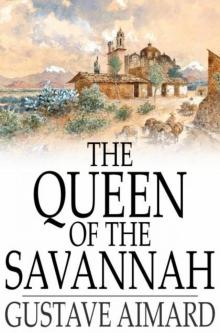 The Treasure of Pearls: A Romance of Adventures in California
The Treasure of Pearls: A Romance of Adventures in California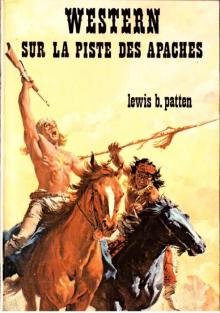 Les outlaws du Missouri. English
Les outlaws du Missouri. English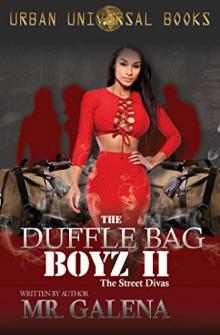 Les trappeurs de l'Arkansas. English
Les trappeurs de l'Arkansas. English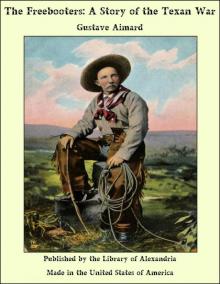 The Border Rifles: A Tale of the Texan War
The Border Rifles: A Tale of the Texan War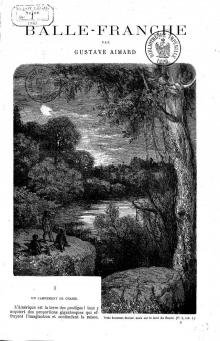 Balle-Franche. English
Balle-Franche. English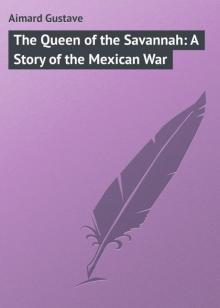 The Queen of the Savannah: A Story of the Mexican War
The Queen of the Savannah: A Story of the Mexican War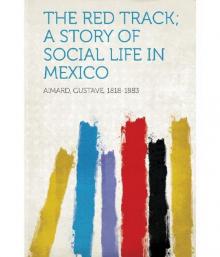 The Red Track: A Story of Social Life in Mexico
The Red Track: A Story of Social Life in Mexico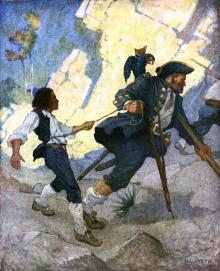 La fièvre d'or. English
La fièvre d'or. English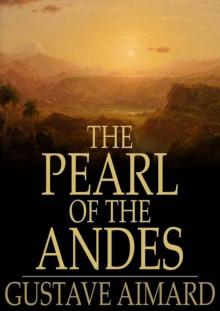 The Pearl of the Andes: A Tale of Love and Adventure
The Pearl of the Andes: A Tale of Love and Adventure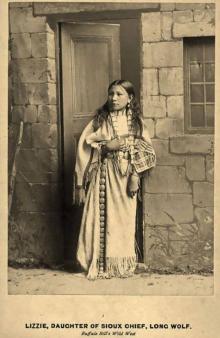 Les fils de la tortue. English
Les fils de la tortue. English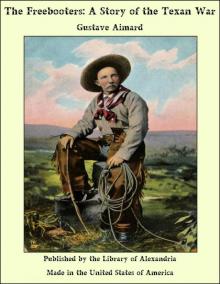 The Indian Chief: The Story of a Revolution
The Indian Chief: The Story of a Revolution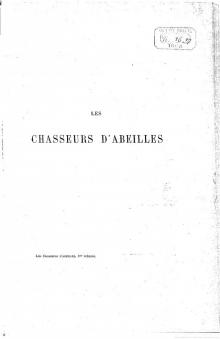 Les chasseurs d'abeilles. English
Les chasseurs d'abeilles. English The Adventurers
The Adventurers